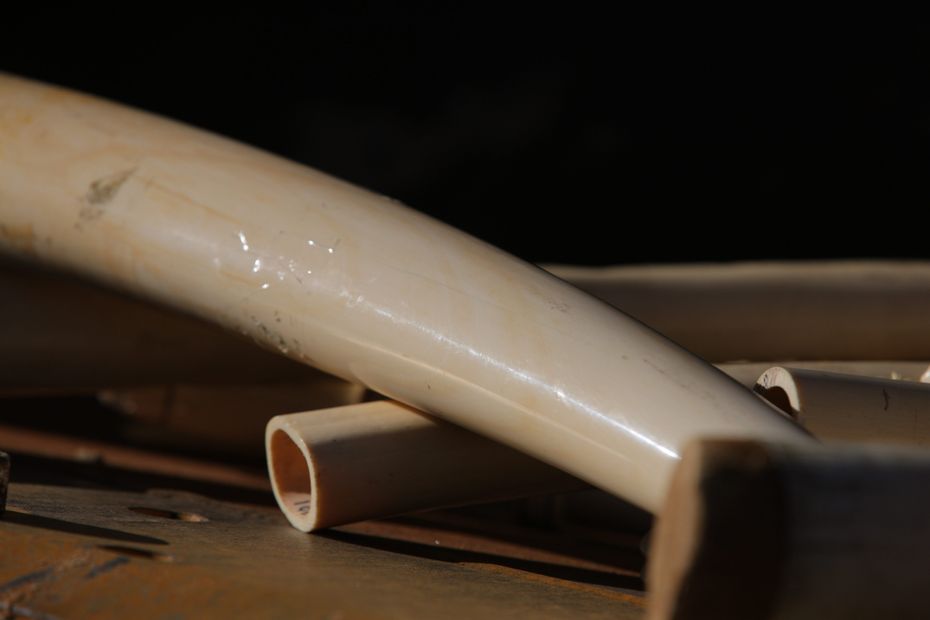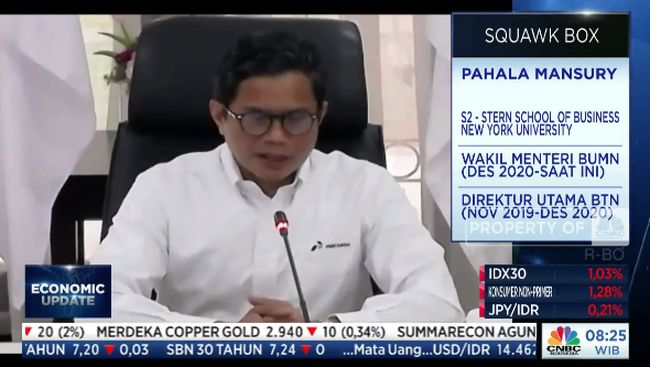“It’s my passion”: at the trial of an international trafficking in ivory and rhino horns, one of the main Vietnamese suspects presented himself on Monday as a simple collector, and moreover a philanthropist. But he had trouble convincing the Rennes criminal court.
“Mr. Ta, we must not be taken for fools!“. President Alain Kerhoas no longer hides his annoyance at the nonchalant responses of the accused David
Your, blue shirt and ponytail, at the bar. 51-year-old entrepreneur, specializing in the export of antiques and perfumes, the latter is suspected of having managed a Franco-Vietnamese trafficking network for elephant tusks.
14 African elephant tusks hidden under a pallet and blanket
A big buyer of raw elephant tusks in auctions, he had a direct influence on the prices of the French legal market at the time of the facts.
But Mr. Ta, who boasted at the sound bar “collection fun“, was not only making legal purchases, according to investigators. During the search of his home in Blanc-Mesnil (Seine-Saint-Denis) in May 2016, 14 African elephant tusks were discovered hidden under a pallet and a blanket, without valid supporting documents.
The trade and export of endangered species are strictly regulated by the 1975 Washington Convention, known as CITES.
Multiple photos of other tusks in the phone
From the photos contained in Mr. Ta’s phone, investigators also counted 62 tusks that passed through his company between November 2015 and April 2016. Other photos of tusks were also located in Vietnam using the phone’s GPS coordinates. .
“That doesn’t prove anything“, loose the defendant, stressing that these photos could have been sent to him by Vietnamese friends.”It proves that there are correspondents in Vietnam with whom you do not only talk about cosmetics and clocks“, retorts the president. “It’s a bit uplifting“.
During the auctions, Mr. Ta was also invoiced for part of his purchases of tusks at an address in Vietnam, a way, according to him, to recover part of the auction costs (lower for foreigners) in order to give them “to the poor“. “In Vietnam, I make a lot of donations to the poor (…) Me and my friends, we built a school“, assures the one who calls himself “watch“by its correspondents.
Also collector of certificates of origin ….
At Mr. Ta’s, investigators also found 23 CITES certificates, documents that prove the legal origin of ivory. But the defenses to which
the certificates were associated were not located. Why did you keep the certificates but not the tusks? “I collect (certificates, editor’s note). This is my passion“, assures the defendant without batting an eyelid.
“You have the right to answer what you want but I have the right to believe what I want“, the president pointed out to him. Placed in pre-trial detention for seven months, Mr. Ta has been under judicial supervision since December 2016.
Eight defendants tried until Wednesday
Like him, eight other British, Vietnamese and Chinese defendants are on trial until Wednesday and face up to 10 years in prison. “We are waiting for big convictions so that it kills possible vocationsCharlotte Nithart, president of the Robin Wood Association, told AFP, which has filed a civil lawsuit.
The case began in September 2015 with a simple customs check on the national 10, in Vienne, during which four African elephant tusks and 32,800 euros in cash had been discovered. Customs officials then uncovered two networks of international trafficking in raw ivory and rhino horns to Vietnam and China, both related to “Rathkeale Rovers“, a traveling delinquency group from the Irish Traveler community.
“Before smuggling, its haggling and trickery, there is poaching with its crueltiesRobin des Bois said Monday in a statement. The African black rhino and the African forest elephant are in “critically endangered“, according to the International Union for the Conservation of Nature (IUCN).
–


